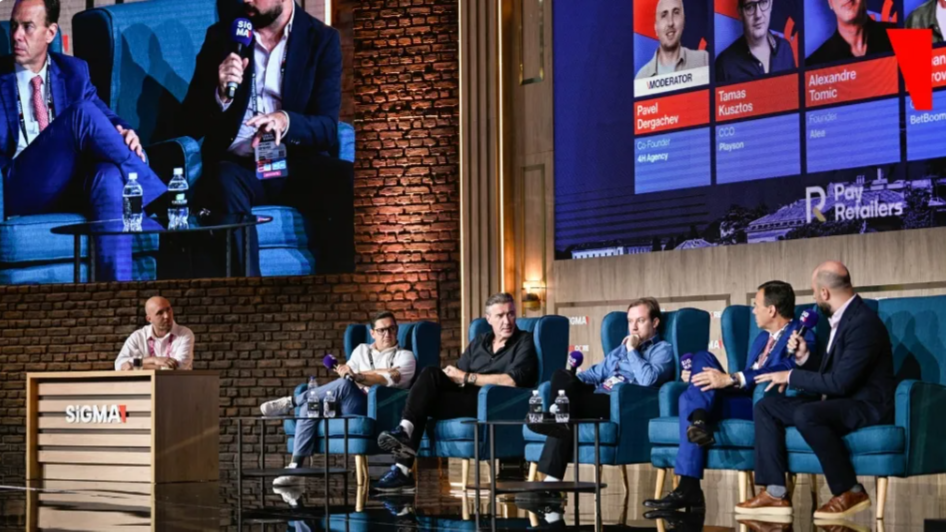
Rome’s expo Fiera Roma hosted the opening day of the conference of SiGMA Central Europe, where Brazil’s newly regulated gaming market dominated the conversation. The Regulatory Briefing stage 1 featured “Power Play in Progress: Who’s In Charge of Brazil’s Billion-Dollar Market?”, a session powered by Pay Retailers that gathered industry leaders to examine what happens now that Brazil’s federal regulation has taken effect in 2025. Operators face a double-edged reality: enormous growth potential exists, but so do complicated tax structures and strict compliance demands.
Plínio Augusto Lemos Jorge, President of the Brazilian National Association of Games and Lotteries (ANJL), summed it up: “The challenge is balancing growth with rigorous compliance to build a sustainable market framework”. Pavel Dergachev, Co-Founder of 4H Agency, moderated the discussion, drawing on years spent working in payments, compliance, and business development.
Other panelists joined Dergachev, such as Tamas Kusztos, Chief Commercial Officer at Playson, who has led casino and online gaming strategy for over a decade. Alexandre Tomic founded Alea and has spent twenty years developing secure iGaming platforms that adapt to regulatory shifts. Stepan Dobrovolskiy runs BetBoom LATAM as CEO, managing expansion across Latin America’s biggest emerging markets. Plínio Augusto Lemos Jorge brought legal expertise on Brazil’s tax codes and regulatory structures, informed by his background as a former judge and current ANJL president. The five represented different angles on the same question: how does Brazil’s market actually work now?
Brazil’s federal rules arrived with detailed tax requirements and government oversight baked in. Jorge described it clearly: “Building a sustainable market requires aligning business ambitions with the evolving legal frameworks and complex tax obligations”. He doesn’t see regulation as something to work around. Instead, he treats it as infrastructure that supports long-term stability.
Operators see both sides. Companies like BetBoom LATAM, Playson, and Alea view compliance as part of the business model, not an obstacle. Kusztos stressed that success depends on “strategic planning based on reliable data, paired with operational agility”. Dobrovolskiy agreed, saying “growth and compliance need not be mutually exclusive but rather complementary, fostering sustainable expansion”.

Alexandre Tomic, founder of Alea.
Tomic highlighted technology’s role in all this. Platforms can’t stay static. “Platforms must evolve with regulatory changes, emphasizing API governance and integration standards that support both innovation and oversight,” he noted.
Brazil’s market looks promising on paper, but panelists pointed to real hurdles ahead. Tax rules remain complicated, and operators need solid compliance systems to function legally. Jorge put it plainly: “Uncertainty in tax regimes can deter investment and hinder market growth if not resolved promptly”.
The “Power Play in Progress” panel made one thing clear. Brazil’s market won’t succeed through regulation alone or operator ambition alone. It requires both sides working together, building trust while testing what actually functions in practice. Legislation sets the rules, but collaboration determines whether the market thrives or stalls.
#BrazilGaming #SiGMA #Regulation #iGaming #Compliance #LATAM #GamingIndustry #ResponsibleGaming